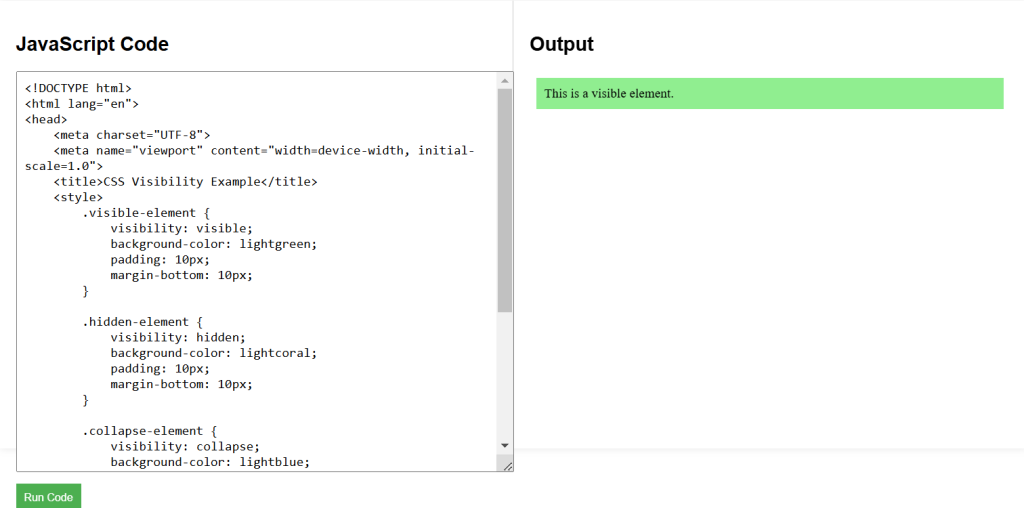CSS visibility allows you to control whether an element is visible or hidden without affecting the layout of the page.
Visible
The visibility: visible; property is the default value, meaning the element is visible.
.visible-element {
visibility: visible;
background-color: lightgreen;
padding: 10px;
margin-bottom: 10px;
}<div class="visible-element">This is a visible element.</div>
Hidden
The visibility: hidden; property hides the element, but it still takes up space in the layout.
.hidden-element {
visibility: hidden;
background-color: lightcoral;
padding: 10px;
margin-bottom: 10px;
}<div class="hidden-element">This is a hidden element.</div>
Collapse
The visibility: collapse; property is used for table rows and columns. The element is hidden and the space it occupied is also removed.
.collapse-element {
visibility: collapse;
background-color: lightblue;
padding: 10px;
margin-bottom: 10px;
}<div class="collapse-element">This is a collapsed element.</div>
CSS Visibility Example Code
<!DOCTYPE html>
<html lang="en">
<head>
<meta charset="UTF-8">
<meta name="viewport" content="width=device-width, initial-scale=1.0">
<title>CSS Visibility Example</title>
<style>
.visible-element {
visibility: visible;
background-color: lightgreen;
padding: 10px;
margin-bottom: 10px;
}
.hidden-element {
visibility: hidden;
background-color: lightcoral;
padding: 10px;
margin-bottom: 10px;
}
.collapse-element {
visibility: collapse;
background-color: lightblue;
padding: 10px;
margin-bottom: 10px;
}
</style>
</head>
<body>
<div class="visible-element">This is a visible element.</div>
<div class="hidden-element">This is a hidden element.</div>
<div class="collapse-element">This is a collapsed element.</div>
</body>
</html>


